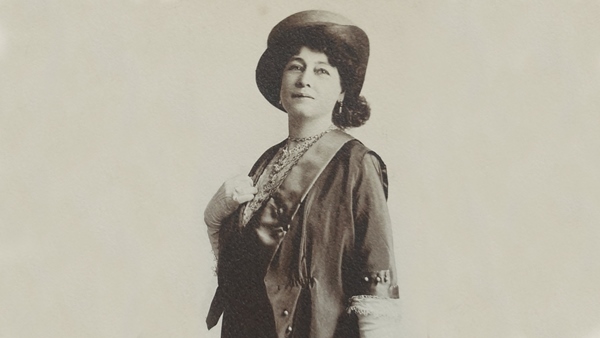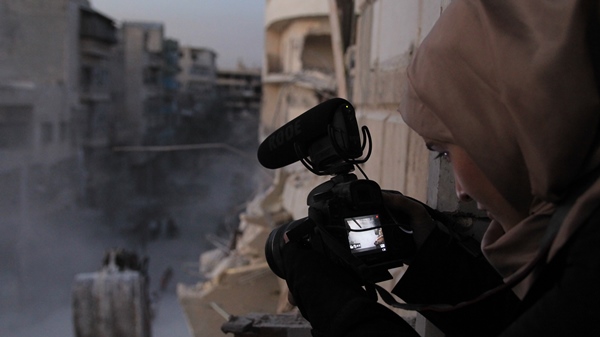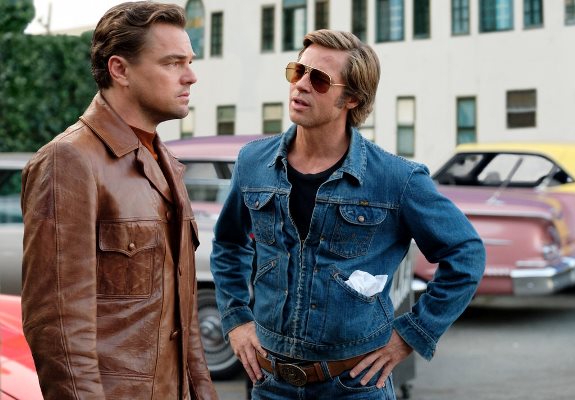
In looking back at the most acclaimed films released in the United States in 2019, there are some prerequisites or ideas to consider for the top 10 lineup. Toss in a few surprises, films that have not received the attention that they deserved, as well as the expected shoo-ins that will pop up on numerous best-of lists, and then step back and look at the bigger picture to double-check if the roster is too slanted in one way or another.
For a site that focuses on international films, there is a wide range to choose from. (By the way, those who admired Bong Joon-ho’s Parasite should also check out the director’s austere psychological thriller Mother, which landed on our list in 2010.) Yet no matter how hard you try to create a list that is inclusive in a variety of ways, there is no escaping that the films favored this year (with the exception of two) are all somehow crime related, though they broadly range from the elegant to the earthy—maybe it’s the genre’s heyday and we’re just realizing it.
The titles below may share some plot similarities—and in at least two of the films, killers get away with murder—yet there is no way to confuse one work for the other. Each has its own distinct voice and style and themes. And if all you need to make a movie is a girl and a gun (to paraphrase what Jean-Luc Godard allegedly said), then the first movie on the list more than meets those two requirements.
In Jia Zhangke’s modern-day epic, Ash is Purest White, gritty realism bolsters stagy melodrama, love endures in a grim underworld milieu, and restless China unspools before our eyes, fast-changing and ever on the move. Qiao (Tao Zhao in a showy yet sensitive performance) is enamored with laconic, sexy gangster Bin (Liao Fan), up to his neck in seedy schemes. Qiao’s firing a pistol in Bin’s defense during an ambush lands her five years in prison. Her journey back to Bin through a transformed physical (and mental) landscape presents a series of tests, each more dispiriting or disorienting than the other.
In Qiao, Zhang has created a larger-than-life Mother Courage dwarfed by China’s immensity; Ash’s majestic, mind-blowing shots of endless housing developments and the massive Three Gorges Dam instill a sense of infinite vastness that renders the individual powerless. Only the most desperate, amoral acts guarantee survival in this environment, and these are what Qiao and her cohorts are doomed to perform—and endure at the hands of others. Free will and fatalism duel in this picture, and blind adoration somehow survives cruelty; the strength of these elements, and their stark contrasts, make Ash a heady and visceral experience. Caroline Ely (Available on streaming platforms and DVD/Blu-ray)

Who was Alice Guy-Blaché, and why does she matter? Director Pamela B. Green’s documentary Be Natural: The Untold Story of Alice Guy-Blaché goes on a high-spirited mission to resurrect the forgotten legacy of a pioneer in early cinema. At the turn of the 20th century, Guy-Blaché worked her way up from production secretary to director, producer, innovator, and movie mogul before leaving her native France to found a production company in Fort Lee, New Jersey. Green interviews a dizzying array of archivists, scholars, and other cineastes to delve into Guy-Blaché’s achievements and figure out why she disappeared from the cinematic canon.
Perhaps wary of creating a traditional—read heavy—feminist biography, the director offers up a fast-moving and fun approach while forcefully making the point that Blaché was cheated both by male collaborators and history.
Be Natural artfully combines vintage film and fin de siècle images with modern motion graphics. Jodie Foster brings assurance and intelligence to the narration, as well as an impeccable French accent that sounds simply magnifique. CE (Available on streaming platforms and DVD)

Myth and history are fused innately in Birds of Passage, which could be described as a chronicle of the impact of illegal drug trading on Colombia’s native communities. It’s also a tragedy about a Wayuu family that faces the consequences of betraying its faith and traditions.
Directed by Ciro Guerra (already acclaimed for his previous feature Embrace of the Serpent) and Cristina Gallego (her debut as director after producing many of Guerra’s films), this formidable team effort is heightened by David Gallego’s sumptuous cinematography and the immersive quasi-ritual score by Leonardo Heiblum.
The script written by Maria Camila Arias and Jacques Toulemonde Vidal is divided into five “cantos,” each moving the story forward from the late 1960s to the 1970s. The poetic structure reinforces the magical realist spirit without contradicting the film’s naturalistic approach. This is a movie rife with dichotomies, where a clan’s symbolic descent to hell is an admonition to the moral decay of an entire country. Guillermo López Meza (Available on streaming platforms, DVD/Blu-ray)

Viewers will not assume that the pensive and impish End of the Century is a debut feature film, because of the spontaneous rapport between the two leads, the deceptively straightforward story line, and the slightest of hand in terms of Lucio Castro’s direction.
On one level, it’s a tale of yearning in the age of Grindr and Airbnb travel. Fresh from the breakup of a 20-year relationship, Ocho (Juan Barbarini) returns to Barcelona after a first life-changing visit back in 1999. He hooks up with Xavier (Ramón Pujol), who he first notices on the beach. When their tryst turns into a lingering date culminating in a rooftop tête-à-tête over wine, the director throws in a whopper of a twist. There are many ways to interpret what actually happens: the tone is true-to-life and dreamlike.
Sensuous and delicate, the movie joins a select genre of travel/romance, such as Before Sunrise, though not as loquacious, and Lost in Translation, but more heartfelt. Kent Turner (playing in theaters)

There is not a clear enough “viewer discretion advised” warning to prepare you for the punch in the gut you get from the documentary For Sama, directed by Waad al-Kateab and Edward Watts. It centers on life in Aleppo during the recent years of Syrian uprising and civil war. Al-Kateab, with her handheld camera, captures the raw intersection between day-to-day living and the violence of a city under siege. Sama is the firstborn child of al-Kateab and her husband, Hamza—a doctor who never ceases to attend wounded and the terminally injured—raised in this climate of war and death.
Al-Kateab presents an uncensored view of the carnage to which the residents are subjected: children are among the casualties and not even hospitals are safe from the Russian bombers constantly flying over the city. Among many powerful, anxiety-producing, and hard to watch sequences, one moment stands out: the long and painful reanimation of a newborn baby initially given up for dead. You can hardly view the outcome without looking away at least once. This also applies to the entire film. GLM (Currently streaming on pbs.org)

The Irishman finds Martin Scorsese in familiar territory, and it feels as long as its 209 minutes, yet it’s a welcome addition to Scorsese’s filmography and stands out from his other films that it outwardly resembles.
Whereas Goodfellas and The Wolf of Wall Street are animated by the exuberanceof their protagonists’ dangerous lifestyles, The Irishman is strangely quiet. There are certainly as many merciless killings as one would expect from a Scorsese mobster film, many set to music, but its criminals are, for the most part, shown with less polish. We are more likely to hear bits of awkward conversation, and clever quips, except in a few key scenes, do not come quite so fast. Most importantly, we witness the cast aging.
When Robert De Niro is confined to his wheelchair at the end, we feel the weight of the years upon him, and his guilt. In this sense, the long running time is perfectly suited; we are meant to share his fatigue. Andrew Plimpton (Streaming on Netflix)

Based on the response on Film Twitter, Joker is the year’s most divisive film. Director Todd Phillips’s audacious, blood-splattering antithesis of the Marvel Cinematic Universe irreverently brings the origin story of the Batman villain down to the lower depths of 1970s/early ‘80s urban crime dramas. Phillips obviously borrows from many, especially Scorsese’s Taxi Driver and The King of Comedy.
Warner Bros. was right to be concerned about the film’s impact, which becomes a visceral, disturbing, but empathetic celebration of revenge after the suicidal, depressed Arthur Fleck faces one humiliation after another. It is rated R—and for good reason. What may be more perplexing is how much downright joy and liberation Joaquin Phoenix’s wiry performance exudes as Arthur lashes out against those who he feels have wronged him.
The sequence of Arthur, in full Joker makeup, dancing down a flight of steep steps to Gary Glitter’s “Rock and Roll, Part 2” is bound be one of the more remembered sequences of 2019. KT (In theaters, various streaming platforms, DVD/Blu-ray)

Think again about everything you expect from a Quentin Tarantino film: recurrent outbreaks of violence that spare no blood; a playful episodic structure; a cool soundtrack; intellectual appropriation of lowbrow pop culture references combined with clever verbosity. In Once Upon A Time … in Hollywood, all these elements are used in a subtle manner uncommon for the director’s work to create a bittersweet fairy tale about the end of an era (the 1960s) and a dream place (Hollywood).
A has-been TV actor (Leonardo DiCaprio as Rick Dalton); his faithful stuntman, assistant, and buddy (Brad Pitt as Cliff Booth); and a movie star (Margot Robbie as the real-life Sharon Tate) inhabit this what-if/alternate history full of tenderness, comedy, and hidden horrors (Cliff visiting the Spahn Ranch, the home of the Manson family). Unlike Tarantino’s other historic revisions, the bloody showdown comes less like revenge for entertainment purposes and more like justice in the name of art. This is Tarantino’s sweetest and most serene masterpiece. GML (various streaming platforms, DVD/Blu-ray)

During a year in which the gap between the rich and poor in America continues to widen, Parasite arrives from South Korea as the perfect funhouse mirror twistedly reflecting back our own anxiety. Bong Joon-ho’s (Okja) dark comedy/thriller centers on a struggling family stuck on society’s lowest rung—until their teenage son lands a job in the household of top one-percenters. Gradually, the clan reveals their ruthlessness and cleverness as they ingratiate themselves into the day-to-day lives of the upper-class family, pushing aside whoever stands between them and economic mobility.
Just when we think we know where the narrative is headed, Bong pulls the rug out from under us via turns that are occasionally dazzling, yet always organic, thanks to meticulous foreshadowing and his knack for slowly building an atmosphere of dread. He also gives surprising depth to nearly every character so we come to sympathize with the protagonists’ shared sense of desperation. All of this makes the bloody, operatic finale all the more tragic and unforgettable. Phil Guie (In theaters)

Nancy Schwartzman’s riveting and galvanizing documentary Roll Red Roll first premiered at the 2018 Tribeca Film Festival and was released in theaters before its premiere on PBS’s POV series. It covers a crime story, the resulting detective work, and a troubling aftermath: the 2012 rape of a teenage girl by members of a high school football team, beloved by a vocal fan base, in Steubenville, Ohio. The case was brought to national attention in part by blogger Alexandria Goddard, who traced the time line of the crime through the culprits’ social media posts.
Sharply and kinetically edited and propelled by a blaring heavy metal soundtrack, the film is one of the more urgently and dynamically told nonfiction accounts of late. It also reminds viewers that this case was among the events that helped set the stage for the energized #METoo movement in 2017. KT (Streaming on Netflix)
















Leave A Comment